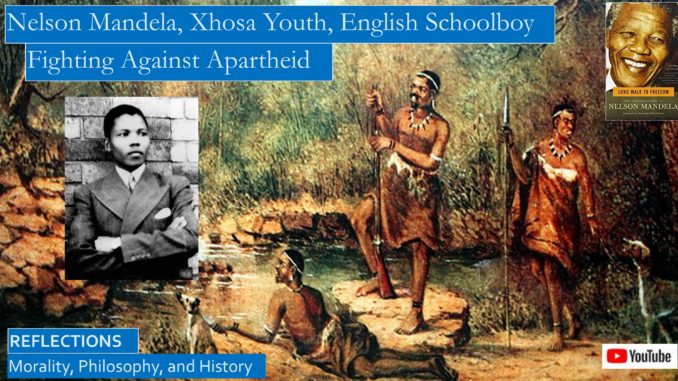
When we walk the “Long Walk To Freedom” with Nelson Mandela, we experience many remarkable journeys, a journey from a primitive tribal Africa to a modern Africa, a journey from English colonialism to Dutch Boer independence, a journey from apartheid to tolerance, a journey from prison to the Presidency.
Nelson Mandela devoted his life to improving the lives of his people by fighting apartheid and hatefulness. Mandela in his law practice and later in his politics strives to work for the public good, avoids strong emotions, lives in spartan simplicity, accepts his present lot in life, is tolerant and forgiving in his relationships with both friends and enemies, always keeping open lines of communication with bitter enemies, but never avoiding the difficult decisions thrust upon us both by events and by those close to us who disappoint us.
Please see our YouTube video, with many photos, at: https://youtu.be/7nx81VPqoX8
Many Americans are quick to condemn anyone remotely related to Communism. Nelson Mandela’s autobiography paints himself as first a compassionate Christian, and also a rather reluctant Communist, reluctantly forced in communism by the brutally repressive policies of the Boer Afrikaner regime. We cannot deny that autobiographies always paint their authors in as favorable a light as possible, but we urge the reader to suspend judgement, open his ears and heart and allow the author to tell his story.
EARLY CHILDHOOD
Nelson Mandela was born into a ruling family of the Xhosa tribe in South Africa as World War I ended in 1918. His mother was the third of four wives, and each wife and her family lived in their own kraal. Nelson tells us, “A kraal was a homestead and usually included a simple fence in enclosure or animals, fields for growing crops, and one or more thatched huts. The kraals of my father’s wives were separated by many miles and he commuted among them.”
His family provided the prime ministers for the tribal kings. His father helped one king gain his position, which allowed his families a relative prosperity, but early in his childhood political misfortunes befell his father, casting them into more typical poverty. His mother was forced to move to the “village of Qunu, which was situated in a narrow, grassy valley crisscrossed by clear streams, and overlooked by green hills. It consisted of no more than a few hundred people who lived in huts, which were beehive-shaped structures of mud walls, with a wooden pole in the center holding up a peaked, grass roof. The floor was made of a crushed ant-heap, the hard dome of excavated earth above an ant-hill, and was kept smooth regularly with fresh cow dung. The smoke from the hearth escaped through the roof, and the only opening was a low doorway one had to stoop to walk through.”
Nelson tells us, “I discovered the almost mystical attachment that the Xhosa have for cattle, not only as a source of food and health, but as a blessing from God and a source of happiness. It was in the fields I learned how to knock birds out of the sky with a slingshot, to drink warm, sweet milk straight from the udder of a cow, to swim in the clear, cold streams, and to catch fish with twine and sharpened bits of wire.”
Nelson reminisces, “when I was sixteen, the regent decided that it was time that I became a man. In Xhosa tradition, there is only one way to make that transition: circumcision. In my tradition, an uncircumcised male cannot be heir to his father’s wealth, cannot marry or officiate in tribal rituals. An uncircumcised man is a contradiction in terms, for he is not considered a man at all, but a boy.” There were about thirty boys his age in his tribe that underwent the weeklong ceremony, they lived under the stars in grass huts in a secluded valley on the river bank.
The Xhosa circumcision ordeal was similar to warrior sweat house rites of the American Indians. Before the British came the Xhosa warriors often performed feats of bravery, perhaps raiding camps of their enemies, but those days were gone, so Nelson’s group substituted mischief for bravery, stealing and barbecuing a pig from a nearby farmer. After the ceremony, there was a great tribal celebration, with much feasting and singing and dancing, with women from the nearby villages eager to see who were these new men.
Nelson describes the circumcision ceremony, “at dawn, when the stars were still in the sky, we began our preparations. We were escorted to the river to bathe in its cold waters, a ritual that signified our purification before the ceremony. The ceremony was at midday, and we were commanded to stand in a row in a clearing some distance from the river where a crowd of parents and relatives, including the regent and a handful of chiefs and counselors had gathered. We were clad only in our blankets, and as the ceremony began, with drums pounding, we were ordered to sit on a blanket on the ground with our legs spread out in front of us. I was tense and anxious, uncertain of how I would react when the critical moment would come. Flinching or crying out was a sign of weakness and stigmatized one’s manhood. Circumcision is a trial of bravery and stoicism, no anesthetic is used, a man must suffer in silence.”
The English had conquered South Africa several generations before, but ruled the rural regions through their kings. Each king had to be approved by the colonial authorities before they assumed power, or what was left of it. Rural society was a mix of the ancient tribal customs and the Christianity the English missionaries introduced. “The missionaries’ axiom was that to be Christian was to be civilized, and to be civilized was to be a Christian.” His mother was also a Christian, and Nelson attended a one-room missionary school where he was given a new Christian name.
Since he was being groomed to be the advisor to the king and his bright intellect, he was later sent to the equivalent of high school in the main tribal settlement, and later he was sent to college, to become what he called a “black Englishman.”
Mandela comments that his early life was governed both by his royal tribal heritage and the Christian Church. What were Mandela’s perceptions of the Church in South Africa? “Virtually all of the achievements of Africans seemed to have come about through the missionary work of the Church. The mission schools trained the clerks, the interpreters, and the policemen, who at the time represented the height of African aspirations.” “The missionaries built and ran schools when the government was unwilling or unable to do so. The learning environment of the missionary schools, while often morally rigid, was far more open than the racist principles underlying government schools.”
Nelson tells us many details of life, how when he first went to school his father cut off the adult length of his trousers to make them fit Nelson then used twine to wrap them around, how he clumsily clogged in and nearly fell on his first day of high school because it was the first time he wore shoes, how the headmaster of the school drove his majestic Ford with the V8 engine, the only automobile in the province, how the boys used to remove the planks of the floor of a school building to enjoy the honey from a bee colony underneath their feet.
After he had been initiated into the warrior caste of the Xhosa tribe, Mandela was sent to the equivalent of the village high school, and was sent for further schooling to the equivalent of a missionary run community college so he could learn how to be a black Englishman.[1]
Blog 2 of this series: http://www.seekingvirtueandwisdom.com/mandela-as-a-reluctant-revolutionary-blog-2/
[1] Nelson Mandela, “Long Walk To Freedom, an Autobiography,” (New York: Little Brown and Company, 1994), pp. 3-33.


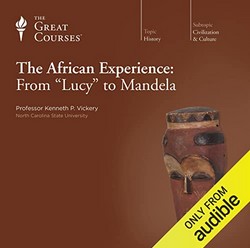
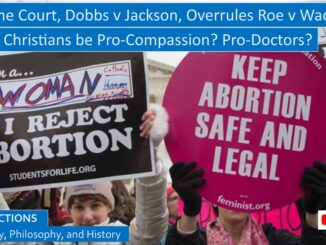
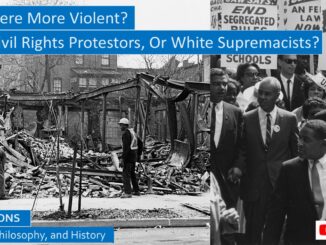
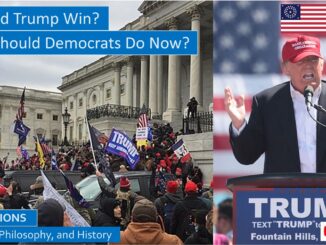
5 Trackbacks / Pingbacks